Artificial Intelligence (AI) has been gaining ground as a game-changing technology across industries, and businesses are no exception. With AI, businesses can automate routine tasks, predict trends and make smarter decisions, leading to increased efficiency, cost savings, and a better customer experience. But with so many AI tools available, it can be challenging to choose the right ones for your business needs. In this blog post, we will explore the best AI tools for businesses, including chatbots, predictive analytics, natural language processing, and more. We will highlight their benefits, use cases, and provide insights into how you can leverage them to transform your business processes.
TensorFlow
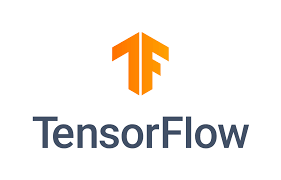
TensorFlow is an open-source software library developed by the Google Brain team for building and training machine learning models. It provides a comprehensive ecosystem of tools, libraries, and community resources that make it easy for developers to build and deploy machine learning models at scale. TensorFlow supports a wide range of applications, from image and speech recognition to natural language processing and robotics. It also supports multiple programming languages, including Python, C++, and Java, which makes it highly accessible for developers with different backgrounds.
Pros
Cons
Overall Rank
IBM Watson
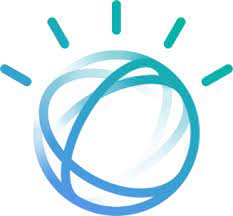
IBM Watson is an artificial intelligence system developed by IBM that uses natural language processing and machine learning algorithms to analyze vast amounts of data and provide insights to its users. Watson can understand complex questions posed in natural language and provide accurate and relevant responses. It has been used in various industries, including healthcare, finance, and education, to improve decision-making processes and efficiency. Watson's ability to learn and adapt to new information makes it a powerful tool for businesses looking to gain a competitive advantage in the digital age.
Pros
Cons
Overall Rank
Keras

Keras is a high-level open-source neural network library, written in Python, that is widely used for deep learning applications. Its user-friendly API makes it easy to quickly prototype and test different neural network architectures, and it is compatible with various backends such as TensorFlow and Theano. Keras offers a range of pre-built neural network layers, including convolutional, recurrent, and pooling layers, as well as utilities for data preprocessing and data augmentation. Additionally, Keras supports both CPU and GPU acceleration, allowing for fast training and inference on large datasets.
Pros
Cons
Overall Rank
Dialogflow

Dialogflow is a conversational AI platform that enables developers to create intelligent virtual assistants and chatbots. With Dialogflow, businesses can build and deploy chatbots on multiple platforms, including websites, messaging apps, and voice assistants like Google Assistant and Amazon Alexa. Dialogflow's natural language processing (NLP) technology allows chatbots to understand and interpret human language, making them more intuitive and engaging for users. Additionally, Dialogflow provides a range of tools for analyzing user interactions and improving the performance of chatbots over time. Overall, Dialogflow is a powerful tool for businesses looking to enhance customer engagement and streamline their operations through conversational AI.
Pros
Cons
Overall Rank
H2O.ai
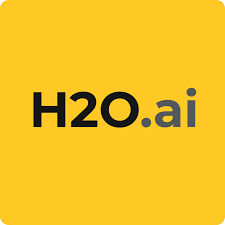
H2O.ai is an open-source platform that offers AI and machine learning solutions for businesses to leverage their data and derive valuable insights. H2O.ai's main product, H2O, is a powerful data analysis tool that allows users to build and deploy machine learning models at scale. With its user-friendly interface and powerful algorithms, H2O.ai helps organizations automate their data analysis process and make data-driven decisions. H2O.ai also offers an AI platform, H2O Driverless AI, which simplifies and automates the entire machine learning workflow from data preparation to model deployment. With its automated machine learning and interpretability features, H2O Driverless AI helps businesses speed up their AI projects while providing transparency into the decision-making process.
Pros
Cons
Overall Rank
Google Cloud Machine Learning Engine
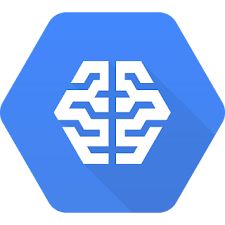
Google Cloud Machine Learning Engine is a cloud-based platform that enables developers and data scientists to build and deploy machine learning models at scale. With its powerful tools and advanced features, it makes it easier to build models for image and speech recognition, natural language processing, and predictive analytics. Users can train and fine-tune their models on massive amounts of data with distributed training, and the platform provides access to pre-trained models for common tasks. Additionally, Google Cloud Machine Learning Engine integrates with other Google Cloud services such as BigQuery and Cloud Storage, making it easy to manage data and scale models up or down as needed.
Pros
Cons
Overall Rank
Microsoft Azure Machine Learning Studio

Microsoft Azure Machine Learning Studio is a powerful cloud-based platform that allows data scientists, developers, and business analysts to build, deploy, and manage machine learning models. With its user-friendly interface and drag-and-drop functionality, Azure Machine Learning Studio enables users to quickly and easily create and test predictive models, without requiring extensive coding skills. The platform supports a wide range of data formats and provides a range of pre-built algorithms and modules that can be customized to meet specific business needs. Additionally, Azure Machine Learning Studio offers seamless integration with other Azure services and tools, enabling users to streamline their workflows and increase productivity.
Pros
Cons
Overall Rank
BigML

BigML is a cloud-based machine learning platform that enables businesses to develop and implement machine learning models quickly and easily. It offers a user-friendly interface that allows users to build, evaluate, and deploy predictive models without needing prior knowledge of machine learning. The platform also provides a range of automation tools that help automate time-consuming tasks, such as data preprocessing and feature selection. Furthermore, BigML offers various integration options, enabling businesses to incorporate its functionality seamlessly into their existing workflows. Overall, BigML is a reliable and accessible tool for businesses that want to leverage machine learning for their operations.
Pros
Cons
Overall Rank
RapidMiner

RapidMiner is a powerful and user-friendly data science platform that offers a comprehensive suite of tools for data preparation, modeling, and deployment. It provides a drag-and-drop interface for building complex machine learning workflows without requiring extensive programming knowledge. With RapidMiner, users can easily connect to various data sources, perform data cleansing and transformation, and apply a wide range of modeling techniques, from decision trees to deep learning algorithms. Additionally, RapidMiner allows for seamless deployment of models and integration with other software solutions, making it an excellent choice for businesses of all sizes looking to streamline their data analytics processes.
Pros
Cons
Overall Rank
DataRobot
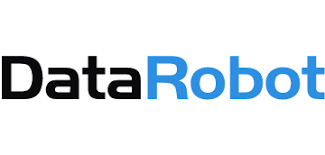
DataRobot is a leading artificial intelligence (AI) and machine learning (ML) platform that enables businesses to build and deploy predictive models quickly and efficiently. The platform uses automated machine learning to analyze and interpret data, making it easy for businesses to leverage the power of AI without requiring extensive technical expertise. DataRobot offers a wide range of features, including data preparation, feature engineering, model training, model evaluation, and deployment. Its user-friendly interface makes it accessible to individuals with varying levels of technical expertise, from data scientists to business analysts. Overall, DataRobot is an excellent tool for businesses looking to improve their data analysis capabilities and make more informed decisions.
Pros
Cons
Overall Rank
Alteryx

Alteryx is a data analytics platform that empowers users to prepare, blend, and analyze data without requiring extensive programming skills. It offers a user-friendly interface with drag-and-drop functionalities that allow users to easily connect to and analyze data from multiple sources. Moreover, Alteryx provides a comprehensive set of tools for data preparation, including data cleansing, filtering, and formatting, which saves time and effort compared to manual data preparation. Its predictive analytics and machine learning capabilities enable users to build advanced models and generate insights from data, and its automated workflows streamline repetitive tasks and increase efficiency. With Alteryx, businesses can make data-driven decisions and gain a competitive advantage in the market.
Pros
Cons
Overall Rank
SAS Visual Data Mining and Machine Learning
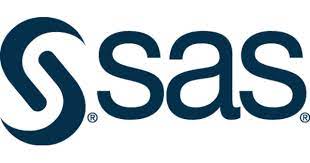
SAS Visual Data Mining and Machine Learning is a powerful tool that allows businesses to explore and analyze their data in a visually intuitive way. The platform offers a range of algorithms and modeling techniques that enable users to develop predictive models, identify trends, and make data-driven decisions. The user-friendly interface makes it easy for non-technical users to create and deploy models quickly, while advanced users can take advantage of the platform's customizability and scalability. With SAS Visual Data Mining and Machine Learning, businesses can uncover insights that may have otherwise been overlooked, leading to better business outcomes and improved operational efficiency.
Pros
Cons
Overall Rank
Amazon SageMaker

Amazon SageMaker is a fully-managed service that enables developers and data scientists to build, train, and deploy machine learning models at scale. With SageMaker, users can access a variety of machine learning algorithms and frameworks, and can also customize and optimize models for specific use cases. The platform provides a range of tools and features, including automatic data labeling, data exploration and preparation, and model tuning, making it a powerful tool for building high-quality machine learning models quickly and efficiently. In addition, SageMaker allows users to deploy and manage models in a variety of environments, including serverless functions, containers, and EC2 instances, providing flexibility and scalability for a wide range of use cases.
Pros
Cons
Overall Rank
Clarifai

Clarifai is an AI-based platform that provides image and video recognition solutions to businesses of all sizes. With its advanced machine learning algorithms, Clarifai allows developers to build custom models that can detect objects, people, and events in visual data. The platform can also provide insights into user-generated content, helping businesses to understand customer preferences and behavior patterns. Clarifai's technology has a wide range of applications, including advertising, retail, and media. Its easy-to-use API allows developers to integrate image recognition capabilities into their applications, making it accessible to businesses of all sizes.
Pros
Cons
Overall Rank
Ayasdi

Ayasdi is a machine intelligence software platform that utilizes topological data analysis (TDA) to extract insights from complex and large datasets. TDA is a mathematical approach that visualizes high-dimensional data by mapping it into a lower-dimensional space, making it easier for analysts to identify patterns and relationships. The Ayasdi platform can be applied across various industries such as healthcare, finance, and energy to address challenges related to data analytics, risk management, and operational efficiency. With its automated machine learning capabilities, Ayasdi enables organizations to accelerate their data-driven decision-making process and improve outcomes.
Pros
Cons
Overall Rank
Infosys Nia

Infosys Nia is an artificial intelligence platform that enables organizations to automate repetitive and complex tasks, make intelligent decisions, and improve business outcomes. With its advanced machine learning algorithms and natural language processing capabilities, Infosys Nia empowers businesses to leverage data and gain valuable insights that can drive growth and innovation. By streamlining processes, reducing costs, and enhancing customer experiences, Infosys Nia helps businesses stay competitive in today's fast-paced digital world.
Pros
Cons
Overall Rank
Wipro Holmes

Wipro Holmes is an artificial intelligence platform developed by Wipro Limited, an Indian multinational corporation that provides information technology, consulting, and business process services. This platform uses cognitive computing, machine learning, natural language processing, and robotics to automate business processes, improve decision-making, and enhance customer experience. Wipro Holmes enables enterprises to harness the power of data and automation to achieve operational efficiency, cost optimization, and innovation. Its intelligent automation capabilities can be applied to various industries, such as banking, healthcare, manufacturing, retail, and telecommunications. With Wipro Holmes, organizations can transform their business operations and accelerate their digital transformation journey.
Pros
Cons
Overall Rank
In conclusion, AI tools have the potential to revolutionize businesses across all industries by automating and streamlining processes, reducing errors, and improving efficiency. The AI tools mentioned in this blog post, including chatbots, predictive analytics, and natural language processing, are just a few examples of the many applications of AI in business. The adoption of AI tools is becoming increasingly important as businesses look for ways to stay competitive in a rapidly changing technological landscape. However, it's important to note that the successful implementation of AI tools requires careful planning and consideration, including selecting the right tool for the specific business needs, having a clear understanding of the data being used, and ensuring that the AI systems are transparent and accountable. Overall, AI tools offer a wide range of benefits for businesses, from improved customer service to increased efficiency and cost savings. As the technology continues to evolve, it will be exciting to see how businesses continue to incorporate AI into their operations to achieve greater success and innovation.
